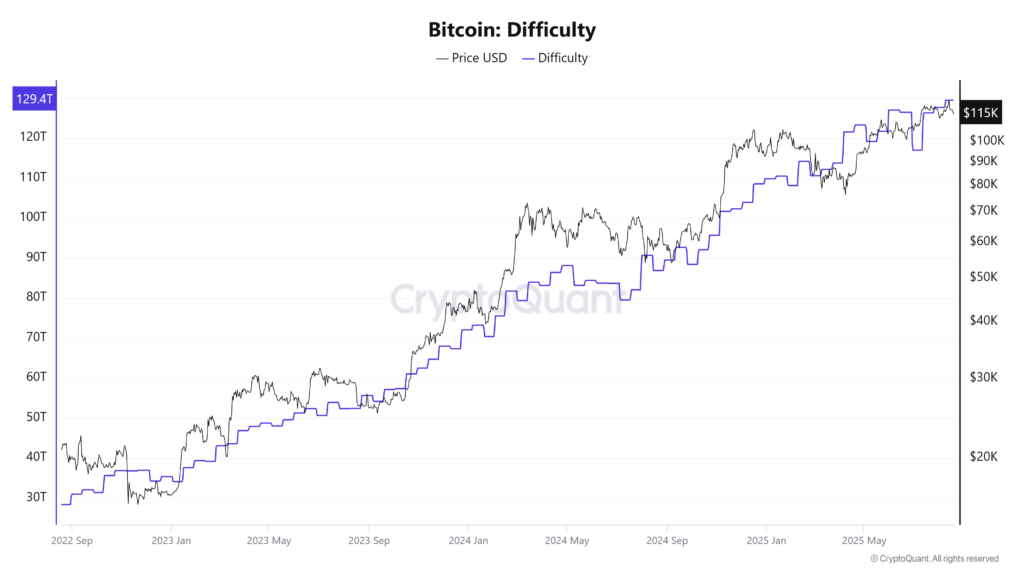Rare Solo Win: Bitcoin Mining Nets Miner $365,000
Bitcoin mining has moved far beyond its humble beginnings. What once could be done casually on a personal computer has become a highly competitive industry that depends on powerful, specialized machines and enormous amounts of energy. In this space dominated by large companies, one independent miner recently achieved an extraordinary outcome.

In brief
- Independent miner solves Bitcoin block number 910,440, earning about $365,000.
- This was only the 305th solo block ever solved on the Solo CK pool.
- Miner ran roughly 9 petahashes per second, with a 1-in-800 chance to win daily.
A Rare Solo Victory on the Bitcoin Network
An individual using the Solo CK pool, a platform designed for those mining on their own, successfully processed Bitcoin block number 910,440. This result earned the miner approximately $365,000 in digital currency. The payment came in two parts: the standard block reward of 3.125 BTC and an extra 0.012 BTC from transaction fees within the block.
That block contained 4,913 transactions, generating about $1,455 in fees. Added to the standard block reward, the miner’s total payout came to 3.137 BTC.
It was not just the earnings that stood out, but how rare the achievement was. CKpool administrator Con Kolivas noted that this was only the 305th solo block solved since the service began. He said the miner was running roughly nine petahashes per second of computing power, which gives a one-in-800 chance of solving a block on any given day.
Those odds show the gap between solo operators and the vast mining farms that dominate the industry. Large facilities with rows of specialized machines account for most of Bitcoin’s computing power, leaving independent miners with slim chances of success. That is why moments like this one are seen as rare highlights in the sector.
The Appeal and Risk of Solo Mining
Mining independently carries both advantages and risks. The main benefit is clear: if a block is solved, the miner keeps the entire award without sharing it or paying pool fees. The risk, however, lies in the low chance of ever finding a block at all. With the global network becoming more difficult, even powerful machines can go long stretches without results.
Figures from CryptoQuant show Bitcoin’s network difficulty at around 129 trillion. This number has been climbing steadily, driven by increasing competition and the massive computing power now involved in mining.

Despite the odds, a few solo miners have managed similar achievements this year. In February, one earned the full reward of 3.125 BTC. On July 4, another miner captured 3.173 BTC, valued at about $350,000. Later in the same month, on July 27, a further solo effort secured a block worth about $373,000.
Though rare, these wins show that solo miners are not entirely shut out. Every so often, an individual can still walk away with the same prize as the massive farms that dominate the network.
At the same time, the growing difficulty and intense competition in Bitcoin mining are shaping the strategies of major firms. To cope, some are branching into artificial intelligence and high-performance computing, using their machines and technical expertise beyond cryptocurrency.
Maximize your Cointribune experience with our "Read to Earn" program! For every article you read, earn points and access exclusive rewards. Sign up now and start earning benefits.

Ifeoluwa specializes in Web3 writing and marketing, with over 5 years of experience creating insightful and strategic content. Beyond this, he trades crypto and is skilled at conducting technical, fundamental, and on-chain analyses.
The views, thoughts, and opinions expressed in this article belong solely to the author, and should not be taken as investment advice. Do your own research before taking any investment decisions.